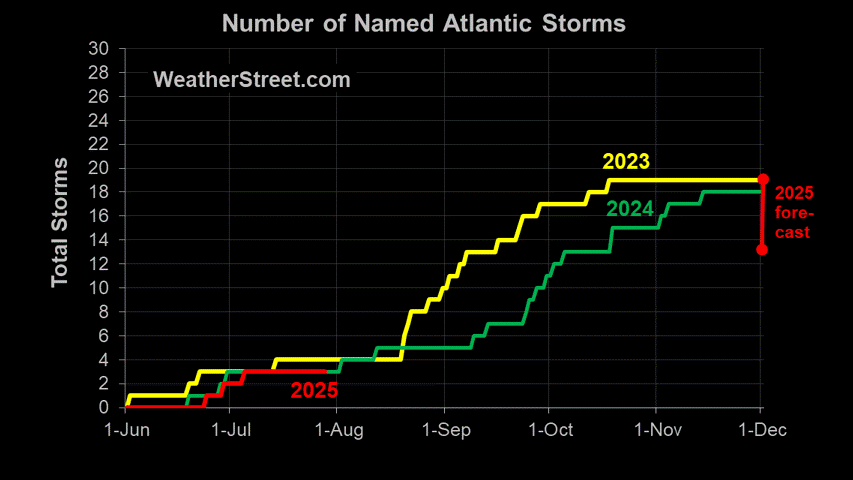Steering currents pulling Hurricane Bill to Canada
 Canadian maritime provinces. As discussed the high pressure system off the eastern Seaboard is weakening proving a pathway through which Bill can move. Additionally a loy pressure front is moving across the US into the northeast. The counter clockwise irflow around the low coupled with the clockwise circulation around the high will create a conveyor belt that sucks Bill up to the north.
Canadian maritime provinces. As discussed the high pressure system off the eastern Seaboard is weakening proving a pathway through which Bill can move. Additionally a loy pressure front is moving across the US into the northeast. The counter clockwise irflow around the low coupled with the clockwise circulation around the high will create a conveyor belt that sucks Bill up to the north.Pathway Taking Shape for Bill (AccuWeather)
As Bill gains latitude, it will also begin to feel the low pressure trough coming through the Great Lakes. As this trough reaches the Northeast by Sunday, the hurricane will begin to recurve toward the northeast and accelerate into Atlantic Canada late Sunday and Sunday night.
Story by AccuWeather.com senior Meteorologist Brett Anderson.
Bill's path appears that it is such that the east coast of the US will feel some of the effects from Bill. New Englanders may experience tropical storm force winds this weekend. The surf, wave action and rip currents will likely be rather strong especially along the mid-Atlantic and New England coasts. Cape Cod is definately in the line of fire to receive tropical weather of some sort.
Additionally tropical weather is already inducing storms in the southern US and increasing the humidity east of the Appalacians. Thunderstorms are predicted for the rest of the week up the I-95 corridor as a result of Bill's influence.
New Englanders Watching Bill, Pattern Change (AccuWeather)
The slight shift in Bill's pathway indicates that Bermuda will not experience a direct hit.As Hurricane Bill makes a close run off the East Coast this weekend, it will set into motion invading waves of cool air from Canada.Bill may get close enough to the New England coast this weekend to bring tropical storm-force winds, especially to Cape Cod, Mass
--snip--
The core of the hottest air is already settling offshore and to the south, as evidenced by Tuesday's thunderstorms. Look for more thunderstorm action through the balance of the week.
Some of the storms can be downright gusty and drenching until the high humidity leaves from west to east this weekend.
The most concentrated amount of thunderstorms, when the most likely time for severe weather to occur will be in the Appalachians Friday and Friday evening, then the Interstate 95 corridor Saturday.
Until the cool air makes significant headway from the west, be on guard that any storm has the potential to bring localized flash flooding and damaging wind gusts.
Major Hurricane Bill: a threat to land? (The Weather Channel)
Bill is a major hurricane with sustained winds to 135 mph. The storm is currently located over 900 miles east-southeast of Bermuda.
Bill is expected to remain a Category 4 hurricane through the next 48 hours.The big question is how close will Bill pass to Bermuda and United States. Even if Bill does not make a direct landfall on either land mass - which is what is currently forecast - the impacts are not insignificant.
Waves will already be elevated on Thursday from North Carolina to central Florida as waves from the hurricane begin to reach the East Coast.
Heading into the weekend, the high waves will spread northward into New England.
In Bermuda, waves will begin to rise by the end of the day on Thursday, with the waves peaking late Friday into early Saturday.
The distance of the storm from land will determine the wind and rain impacts, both in Bermuda and the eastern U.S., most likely southeastern New England.
A storm track along the western edge of our projected path would bring more significant wind and rain to Cape Cod.









<< Home